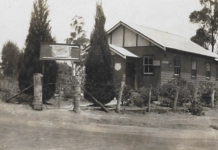by Graham Pratt, Thornleigh Baptist Church
While many of our Baptist churches seem to have circumvented the worst of the “Worship Wars” experienced in other countries, music for congregational worship here is still a catalyst for discomfort and frustration for many worshipers. Too often the songs selected are difficult to sing or worse, are irrelevant to some sections of the congregation. These factors contribute to perceptions of out of touch “performer” worship teams and contribute to passive, “observer’ congregations.
Ryan Day (“Selecting songs for Sunday”, TIM, Summer 2014-15) has proposed 10 thoughtful and practical questions to use in developing a framework for worship song selection. Perhaps two additional items could be added. The first relates to who should select the songs. Often this is the prerogative of the worship leader scheduled for a particular service. It is contended that few individuals can undertake this task effectively alone. Today there are too many contrasts between music styles and genre appreciated by different age groups. So many new songs are being introduced that it is difficult for congregations to learn them well. Some contemporary songs should be retained as solos, being too complex in melody and structure for the typical worshiper. Furthermore, some musically trained worship leaders are unable to identify with those congregational members who may listen to Christian music radio or CDs rarely and possibly sing only at worship services.
For this reason it is recommended that a Panel be formed for each service, representing a cross-section of the congregation, to assist worship leaders by developing a consolidated range of songs from which leaders may draw their weekly selections. A panel of say five could comprise representatives of the major age groupings in the congregation, including those who love to praise the Lord in song (but who are not necessarily trained musicians), as well as the Pastor with oversight for that worship service. There would need to be a competent musician (probably a worship leader) who could research (along with others who are musically astute, if not trained) and introduce proposed songs for the panel to consider. Rather than be limited in theological theme, time period or genre, the Panel should actively seek to cover a broad spectrum of songs, including from Hillsong style contemporary, Anglican contemporary, British contemporary (eg as presented on TV in “Hymns of Praise”), Scripture songs of the 1980s and 90s (eg publications by the Garretts), and some of the perennially relevant traditional hymns.
The song selection process is incomplete without a weekly review of the congregational response to the worship songs. Again this is a task more appropriate for a representative panel than a single worship leader. The latter is not objectively able to assess the responses from congregational members if she/he is are actively involved in the presentation. The review need not require another meeting. Rather, shared email evaluations of each song could be a fairly quick process, categorising each song according to: “use regularly”; “Use often”; “needs more work”; “use sparingly”; “Don’t use again” (or similar).
It is suggested above that our congregations frequently don’t know many songs sufficiently well to sing enthusiastically, due to the number and frequency of new songs being introduced. The tried and proven maxim to introduce new songs progressively over several weeks (eg as instrumental item, then solo/ensemble, then congregation – followed up again after two or three weeks) often seems to be overlooked. Because they are listening to CDs on multiple occasions, worship leaders and instrumentalists perhaps don’t appreciate how much better they know newer songs than many members of congregations.
Where a church is not large enough to support several services aimed at different age or other groups, it is important to select a blend of songs for every service that appeal to different sections of the congregation. Day argued, “songs for Sunday services should never be chosen to simply ‘appease’ a certain person or demographic”. If this is taken too literally, the danger is however that worship teams may fail to empathise with the worship needs of those in their congregations. What is being argued for here is a sensitivity to the genuine worship music needs across congregations. If there are several worship teams that rotate, it is not sufficient for each to present their own preferred genre of songs when scheduled.
Some congregational members unfortunately leave worship services feeling that they have been at a stimulating teaching/preaching session but watching a musical performance, albeit of a high professional standard. The Scriptures remind us that King David retained tight personal control of the temple worship musicians, 288 in total, who were both trained and skilled (1 Chron 25: 1-8). Many churches are blessed today with individuals who have studied and trained in voice or another musical instrument for many years. The continual challenge for these people is to cloak themselves in humility (1 Pet 5:5-6) and remind themselves that they are called to serve their congregations, although in a ministry more prominent than many others. It is a constant temptation to become transported on an ego trip by the impressive sounds that are being made. This “performer” danger is enhanced when bands, choirs and soloists occupy centre stage for much of the worship service, especially with high volume amplification.
Rather than “performers”, worship leaders and teams should strive to be, and be seen as, serving their congregations, having as their prime goal “helping the worshipers connect with God” (Day). Methods need to be developed and tried to encourage more enthusiastic participation in congregational singing (eg some songs or verses a cappella, and regular contrasting use of acoustic instruments for accompaniment such as clarinet, flute and piano).
Those leading worship have enormous influence over each week’s worship efficacy and potential for each person in the congregation. The worship songs provide a foundation for the preaching/teaching. This is an awesome responsibility for which all of us who lead worship will one day stand to account.




































